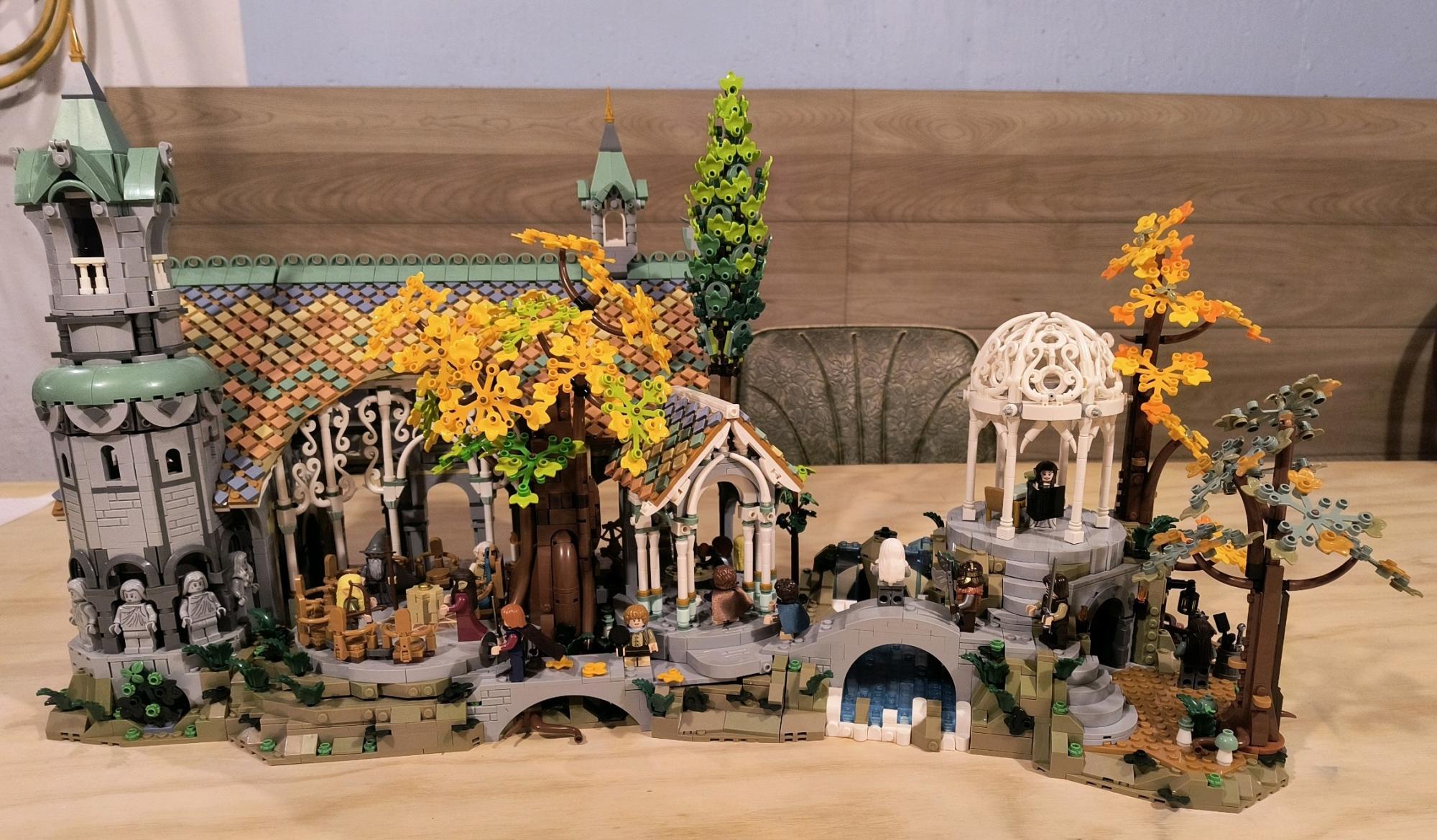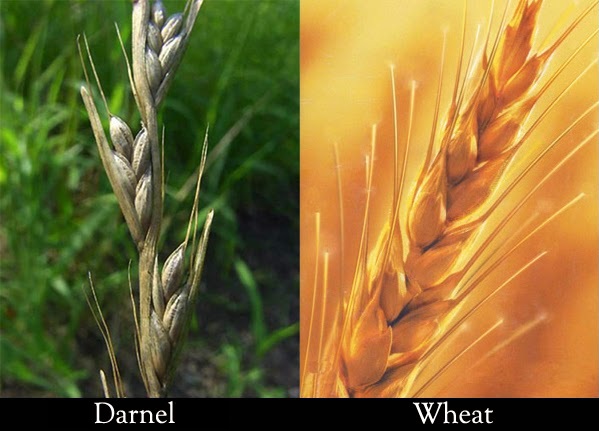Different, but Together
By Anthony Casperson
6-7-25
A few years ago, I had my first interaction with something that I jokingly refer to as “schmego.” I came across this knock off Lego Bricks playset as I attempted to find the original for a price that cost less than a brand new video game console.
From the picture that I saw, the set looked exactly the same. I zoomed in on the details in the pictures, and couldn’t see a difference. Other than a greatly reduced price. So, I bought the set.
When it arrived in a plain cardboard box with the instructions and the inner bags all sitting loose within—meaning that they weren’t in the standard Lego box—I began to be concerned. I googled how to tell the difference between Lego and knockoff “schmego.” The results explained two key areas to tell the difference.
First is the fact that every Lego brick will have LEGO printed on it somewhere, usually on each individual stud. Then second, the figures will often have minor differences of design. Neither of these differences are easily noticed in pictures shot from farther away.
While I had fun building the “schmego” set, I know that I should keep it separate from any actual Lego that I have. While the bricks could be used interchangeably, the use of a knockoff brick along with the real thing would decrease the value, should I ever wish to sell it. And let’s not even talk about the headache that would happen if all of the individual bricks were intermingled with one another in a big bin. Certainly, my price to be the one sorting the pieces would be rather high.
More than just because of the fact that the “schmego” set is directly behind my eyeline while writing these blogs, I thought about the differences between the real and the knockoff because it truly encapsulates the idea of Jesus’ story told in the parable we’ll discuss in this week’s blog.
Immediately following the parable from last week, we find Matthew 13:24-30, 36-43 and its parable with a couple of different names. Some refer to it as the Parable of the Weeds. Others name it the Parable of the Wheat and Tares. But I think we should really call it the Parable of Wheat and Darnel. (Although, I do have to admit that I like the Greek word zizanion better than either “tare” or “darnel.”)
During my research for this blog, I learned that the “weeds” here aren’t dandelions or some form of thorny vine, like I’d always assumed. Especially after the previous parable’s use of thorns to describe weeds that choke out the life of the surrounding flora. Rather, it’s a specific type of weed that is very wheat-like in appearance. And the word zizanion can only be found in this parable within the entirety of the New Testament. Thus, its rarity of use shows us that the specific idea of the word is important to the point of the parable.
The key thing about darnel/tares/zizanion is that it’s not until the budding of the plant—right when the grains of the wheat are to be found—that a person can see the differences between wheat and darnel. Wheat will have a golden brown color. Meanwhile, darnel has a darker green color that’s almost black. And obviously, the former is edible, while the latter is not. Darnel is even considered toxic because of the higher likelihood of it containing a fungal infection that can produce severe neurological damage in a person.
The first, a life-giving nourishment. The other, a carrier of toxic death.
However, we’re not here for a botany lesson, but rather a story that helps us understand the mysteries of the kingdom of God. So, let’s look at the parable itself, found in verses 24-30, and its explanation from verses 36-43.
Jesus continues his agricultural illustrations by speaking of a sower going out to sow good seed in his field. And after a job well done, the sower goes to sleep. But covertly in the night, under the cover of darkness, an enemy of the sower comes to disrupt his work. This enemy scatters out the seed of darnel within the same field.
After a short time, the sower thinks that he has an amazing harvest ahead of him. A whole bunch of sprouts stick out of the ground. And as time goes by, everything looks alright for the most part. Maybe one or two stalks look a little odd. But then one day, a field worker squints at the bud of the plant.
Something’s wrong. The color’s too dark. Not on all of the stalks. But on far too many.
The field worker races to the sower, asking “Didn’t you sow only good seed? Only wheat? Why then is there darnel mixed with the wheat?”
“Yeah, we made sure to only use wheat seed,” the sower frowns. But then a sudden realization strikes him, “An enemy must’ve sabotaged our harvest.”
While the field workers wish to pluck up the darnel away from the wheat, the sower realizes that the root system has interwoven throughout all of the plants. Thus, to pluck out the darnel would likely destroy, or at least disturb, the wheat. It would be better to wait until the day of harvest. Then, the field workers could pluck the heads of darnel first. And after throwing them into the fire, then they could harvest the wheat and bring it to the sower’s storehouse.
Jesus continues to speak in a couple of very short parables about the kingdom in Matthew 13:31-35. But when we get to verses 36-43, we see the disciples ask Jesus about the meaning. To this question, he explains the allegorical nature of his parable. You can look at the verses for each piece of the puzzle. But I want to draw our attention to a few details to help us understand a few things about the mystery of the kingdom shown here.
First, notice that Jesus says the field is the world. And since in verse 24, he’d said that the kingdom of heaven can be compared to a sower going out to sow good seed in a field, that means there’s an aspect of the kingdom of God that exists in our current circumstances. I believe that this aspect of the kingdom ethic is meant to be us, the followers of Jesus who are the children of the kingdom, and how we interact with the world.
As citizens of his kingdom, we get to take part in the “now” of the “now, but not yet” of the kingdom. Shining examples of the sun-like righteousness that we will truly be when the fullness of the kingdom arrives. Stalks of golden brown amid the darkness of sin’s toxic knockoff.
We get to reveal the greatness of the kingdom’s mysteries to the world. Live out the good of the kingdom. Bear good fruit. Produce what this field of a planet was always supposed to grow.
But secondly, we also should notice that Jesus allows the wheat and the darnel to grow together. Interspersed. Intermingled. Intertwined. Both plants grow side by side until the day of harvest at the end of this age.
While the sower provides an explanation that he doesn’t want to destroy the wheat in the midst of culling the darnel, I believe that the purpose of this delay doesn’t neatly fit within the allegory. In reality, the delay of sinners’ experience of being thrown into the fiery furnace, where there’s weeping and gnashing of teeth, is because of God’s grace in waiting for the entire harvest of wheat to be ready. A wait for all of those who will bow before the cross and follow Jesus to come to full fruition.
Regardless, the sower allows the sinful desires and breaking of the law to continue to exist. And that’s not because he’s mean, or likes the toxicity of the plant. But rather it’s for the sake of the wheat. So that none is lost in the uprooting action. In order to gain the greatest yield of harvested wheat, he allows the sabotage to remain.
We followers of Jesus live in a world alongside sinners. Some might forever remain as darnel. But for the sake of the harvest that this sinner might become, like we once experienced, we should live alongside them and shine like the sun before them.
Finally, we should notice that there are again only two options for humanity. We are either the children of the kingdom, the wheat. Or we are the children of the evil one, the darnel. There is no other option.
While we do grow up together, the end result come harvest time is either the storehouse or the furnace. Eternal glory as we shine with the brilliance of our Savior. Or eternal damnation as we weep, gnash our teeth, and writhe in the knowledge that we could’ve chosen the other path.
The choice is ours in this field of a world. And our fruit, the grains found upon us, will prove what choice we’ve made. It all comes down to whether we act like children of the kingdom of God on this planet, or if we act in the sinful and law-breaking manner of the children of the evil one. Whether we bow before the cross of Jesus, or reject the salvation he offers.
What are you? The real thing or the knockoff? Lego or “schmego?” Wheat or darnel?
A day will come when the two kinds will be separated, despite how close we look to one another. And it’s best for us if we shine with the golden brown of the sun’s rays rather than the darkness of sin and death.



